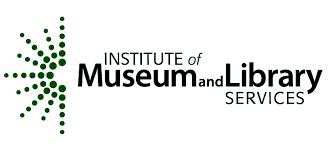To assist Nebraska public libraries in responding to the coronavirus pandemic, the Nebraska Library Commission has been allocated $165,000 in federal funds to provide grants to libraries through a competitive grant process. These funds are administered by the Institute of Museum and Library Services, from the CARES Act (Coronavirus Aid, Relief, and Economic Security Act, Public Law 116-136). The funding is available to help libraries prepare to reopen to the public and adapt services to reduce the impact of COVID-19.

Online applications will be accepted through 11:59 PM (CT) on June 30, 2020 at http://nlc.nebraska.gov/grants/caresact/
All legally established Nebraska public libraries (both accredited and non-accredited) are eligible to apply. Other organizations can partner with an eligible entity for purposes of submitting a grant application for a collaborative project. Partnerships with museums are encouraged. A local match is not required.
The spending principles for these funds are driven by the language in the CARES Act:
- To prevent, prepare for, and respond to COVID-19; and
- To expand digital network access, purchase internet accessible devices, and provide for technical support services.
To achieve these purposes, the funding is to be used as follows:
Primarily to address digital inclusion and related technical support, using the following types of data to inform targeted efforts:
- Poverty/Supplemental Nutrition Assistance Program (SNAP);
- Unemployment; and
- Broadband availability.
Here are some examples of projects that would fit this grant. This list is not exhaustive, but rather intended as a general guide or resource for allowable projects:
Connectivity: Laptops, Chromebooks, tablet computers, or other devices for use inside or outside of the library; hotspots, devices with data plans; Wi-Fi extenders and repeaters; and other equipment upgrades.
Digital content: eBooks; Audiobooks; and databases.
Unemployment related: Online unemployment resources; assistance with job searches; training librarians to assist in unemployment; and partnerships with unemployment related organizations.
COVID-19 response supplies: Disinfectant sprays and wipes; masks; gloves; sneeze guards for desks and counters; and keyboard covers.
Virtual programming: Summer reading and other programs to reach at-risk, educational, or other targeted populations (partnering with museums and tribes, if possible).
**NOTE: Construction projects are not allowable. This includes broadband infrastructure projects that require construction equipment, trenching, construction related trades, and “last mile” projects.

